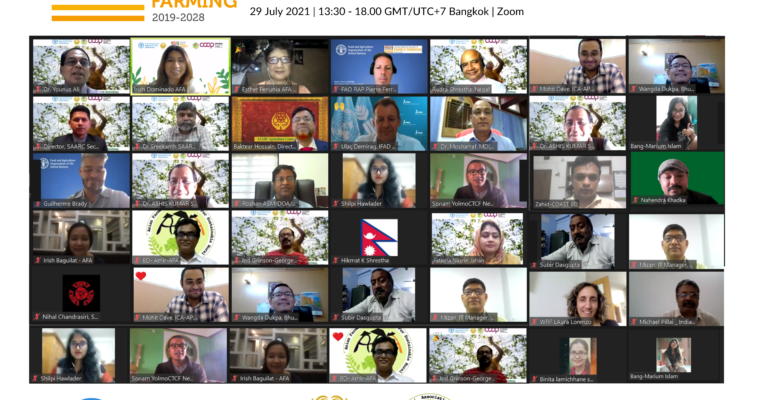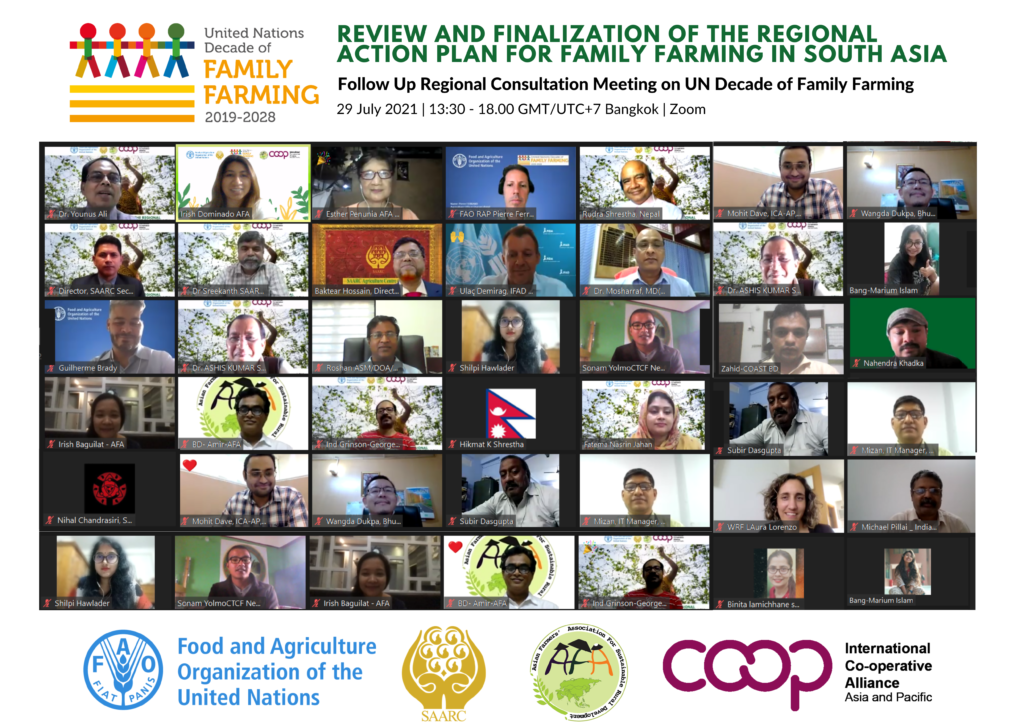The UN Decade of Family Farming (UNDFF) has put on the spotlight the contributions of family farmers and at the same time calls on all stakeholders to create opportunities for family farmers to achieve their full potential, thereby significantly contributing to SDG goals. Some fundamental steps are the translation of the Global Action Plan (GAP) with 7 pillars into National Action Plans (NAP) and the creation of the National Committee of Family Farming (NCFF) that will steer the process (visit the Family farming campaign website for more information on). In Asia, the Asian Farmers’ Association for Sustainable Rural Development (AFA) has been working with several partners such as the World Rural Forum (WRF) to support the implementation of UNDFF at the regional and national level.
On 29 July 2021 AFA jointly organized an important regional event with the SAARC Agriculture Centre (SAC), International Cooperative Alliance Asia and Pacific (ICA-AP), and Food and Agriculture Organization Regional Office for Asia and the Pacific (FAO RAP). Dubbed as “Review and Finalization of the Regional Action Plan for Family Farming in South Asia: Follow Up Regional Consultation Meeting on UN Decade of Family Farming”, this regional event attended by 76 participants has successfully launched a publication and the Regional Action Plan. It is a continuation of the event held on 5-6 November 2021 attended by 150 participants titled the “UN Decade of Family Farming: Formulating Strategies and Action Plan to Strengthen Smallholder Family Farmers in South Asia”. The two-day consultation meeting was a crucial step as participants jointly elaborated the regional action plan. Both events were attended by representatives from SAARC governments, family farmers organizations, civil society, experts, professionals, research institutions, and cooperatives.
The publication, “United Nations Decade of Family Farming 2019-2028: Regional Action Plan to Implement the UNDFF for Achieving the SDGs in South Asia”, is jointly published by SAC, FAO, AFA, and ICA-AP. The book will serve as a reference to member states as they develop, further elaborate, and implement their NAPs. It contains the country reports, key policy priorities, strategies, and actions for each of the seven pillars.
Following the book launching were two essential sessions where the Regional Action Plan was once again presented and discussed through plenary and breakout sessions format. Towards the end of the meeting, representatives from member states shared updates and their commitment to using the publication as they develop and implement their plans.





Comments are closed